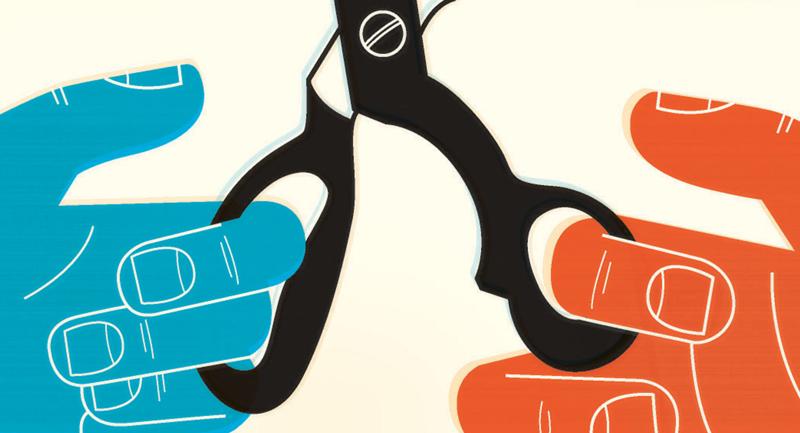Among some basketball fans, there is an intermittent—and usually playful—debate about whether the best playground players could compete with the “last guys” on an NBA bench. Few think that the LA Fitness all-star who went D2 back in the day could beat LeBron James, but surely, he could hang in there with the pros who go entire NBA games without taking off their warm-ups. It’s a fun fantasy to imagine Joe Schmo beating a pro, but every time this debate reaches NBA circles, the pros immediately throw cold water on it.
In ESPN’s “30 for 30” documentary The Greatest Mixtape Ever, former pro Lou Williams was asked if playground legends could hang with even the least accomplished NBA players. His answer was an emphatic, “No! We’re trained professionals. We play basketball on days that we don’t want to play basketball.” His point was clear: Casuals hoop when they want to, while pros work on their skills when they have headaches and when they’re sore and tired. They spend countless holidays in arenas, playing on TV screens as casuals watch them over their family dinners. To borrow from Grammy winning hip-hop artist Kendrick Lamar, to pros, playground players are simply “not like us.”
Teachers Are Pros, Too
Many veteran teachers (including me) have felt like Lou Williams. For years, we have continually shown up to play, whether we have felt like it that day or not. We’ve taught both students who want to be there and those who emphatically do not. Many of us have planned and executed hundreds of thousands of hours’ worth of lessons. In addition to our collegiate training and months spent as student teachers, we’ve sat in countless hours of professional development. We are trained, credentialed, experienced professionals, not casuals on the playground who have a few cool ideas. Many of us, in fact, have advanced from professionals to experts in the craft of teaching.
In his book, The Death of Expertise, Tom Nichols argues:
In the end, expertise is difficult to define. And experts are sometimes hard to tell from dilettantes. Still, we should be able to distinguish between people who have a passing acquaintance with a subject and people whose knowledge is definitive. No one’s knowledge is complete, and experts realize this better than anyone. But education, training, practice, experience, and affirmation by others in the same field should provide us with at least a rough guide to dividing experts from the rest of society. (p. 39)
Many people have opinions on education, but they are not experts on classroom practice. Not because they aren’t smart, but because they haven’t put in the work required for their opinions to be definitive. Not because they don’t have good ideas, but because they face little professional accountability for when their bad ideas go up in flames.
If education systems want to convince expert teachers to stay for the long haul, they have to recognize three things:
First, school and district leaders must be wary of the influence of casuals. Influencers should not be treated like education experts. Nor should the opinions of wealthy “hobbyists” govern expert teachers’ classroom practice. We should not look up one day to find that our curriculum has been unduly shaped by some rich casual’s vanity project, or even worse, that our students have become political footballs. Casuals make a lot of noise; they trust noisy data, launch noisy protests at school board meetings, post noisy diatribes on social media, and make noisy public donations with quiet strings attached. Good school leaders know that keeping expert educators means keeping as much of this noise at bay as possible.
We can’t have it both ways: School systems can’t retain and infantilize expert teachers.
Second, school leaders must stop treating expert educators like novices. So many times, policy decisions meant to support novices—or to even lift ineffective veterans to a basic level of competence—are forced upon expert teachers with strong and consistent professional track records. Teachers who have both decades of experience and reams of well-planned, demonstrably effective, student-centered curriculum are told that this year, they have to teach from a script. This would be unspeakable in most fields. Imagine telling a doctor to stop prescribing a medicine that has consistently worked for decades, just because interns and residents are having trouble keeping doses right.
New doctors, like novice teachers, might need special oversight and attention until they get things going in the right direction. Soon, with practice and mentorship, they might become professionals, then—eventually—experts. Experienced and effective teachers, however, do not deserve to be caught up in school or district-wide remediation. All this usually does is make students’ experience worse, as the unique, carefully crafted learning experiences that expert teachers have created for them are replaced with canned curriculum that so often lacks a soul. There is only so much of this an expert teacher can take before being driven to look for a place that, in valuing our expertise, lets us teach in ways that we’ve shown works for kids.
Third, true expert teachers know that our classroom expertise isn’t the only expertise that matters. Expert opinions on psychology and child development are crucial, as are opinions on literacy and numeracy, not to mention those informed by one’s deep knowledge of any relevant subject area. School policymakers should listen to those who have a rich understanding of the many cultures that our students come from. It’s important that, in gathering all this varied information and perspectives, we don’t forget expert classroom teachers!
Ask Teachers First
“What are the teachers saying?” is an important question. Take cell phones. For years, classroom teachers have been ringing the alarm that our students are struggling to stay focused. But instead of listening to teachers, many decision makers dodged the question or consulted with others who weren’t in the classroom. It took the nationwide reaction to another non-teacher expert, Jonathan Haidt—in his book The Anxious Generation—to get many schools to start crafting and enforcing cell phone policies. Most expert teachers could have told you just about everything (school-related) in his book five years ago. With this in mind, it seems like it might be a good idea to listen to what classroom teachers have to say about AI.
We can’t have it both ways: School systems can’t retain and infantilize expert teachers. And, if we want talented young teachers to look at a district as their possible “forever” district, or a school as their “forever” school—the one where they want to invest enough time to eventually become an expert—both districts and schools have got to recognize and respect classroom expertise.









